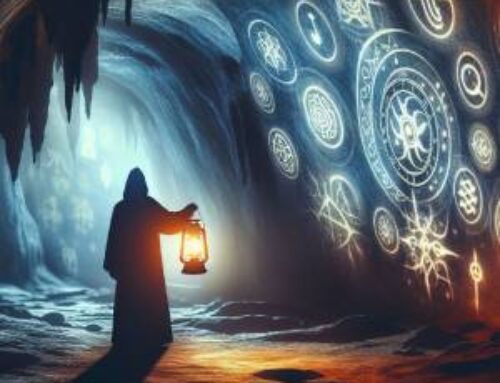Contents
- 1 Introduction to “Wisdom or Knowledge in the Bible”
- 2 Chokmah: The Sephirah of Wisdom
- 3 Binah: The Sephirah of Understanding
- 4 Reflections and Connections
- 5 The Dance of Chokmah and Binah
- 6 Biblical Wisdom Unveiled
- 7 Bringing Ancient Wisdom to Everyday Life
- 8 A Journey Toward Enlightenment
- 9 Unearthing Hidden Treasures
- 10 Practical Applications and Reflections
- 11 Where to Go From Here?
- 12 FAQ- Wisdom or knowledge in the bible
- 13 References:
Introduction to “Wisdom or Knowledge in the Bible”
Wisdom or knowledge in the Bible is portrayed as essential for understanding God’s purpose and living a faithful life. But when it comes to the Bible, many perceive it as merely a historical or moral document. However, it also serves as a profound guide to spiritual enlightenment. Central to unlocking its hidden truths are Kabbalistic teachings—what some might call the ‘received tradition.’ Kabbalah helps decode the Bible’s mystical language, showing that metaphors about the physical world often point to higher spiritual realities. Intrigued? Let’s dive into how Kabbalah reveals Wisdom or knowledge is portrayed the Bible.
The primal tradition of the one and only revelation has been preserved under the name of Kabbalah by the priesthood of Israel (1).

Chokmah: The Sephirah of Wisdom
If you’ve ever pondered the concept of wisdom in a spiritual context, you might want to start with Chokmah. Known as the second sephirah on the Tree of Life, Chokmah represents pure, boundless energy and the initial spark of creation. It’s linked to the brain’s right hemisphere—think intuitive insight and perceiving unity amidst diversity. Chokmah, the forerunner to understanding (Binah), delivers raw, unshaped knowledge, later structured into comprehension.
King Solomon’s famed wisdom exemplifies Chokmah. Remember the story where he determines the true mother of a child claimed by two women? (1 Kings 3:16-28). That wasn’t just shrewd judgment; it was Chokmah in action—divine wisdom transcending ordinary logic to touch upon deeper truths.
Proverbs personifies wisdom, portraying it as a divine entity present at creation (Proverbs 8:22-31). This underscores wisdom’s pivotal role in the divine order. Studying Chokmah reveals that wisdom is not just human intellect; it’s divine illumination guiding us toward spiritual awakening.
Binah: The Sephirah of Understanding
Moving on to Binah, which means “understanding,” and you’re in for a treat. Positioned as the third sephirah on the Tree of Life, Binah connects to the left brain hemisphere—think analytical thinking and structuring information. Here, the raw wisdom of Chokmah is molded into comprehensible forms. Binah bridges abstract wisdom and practical application, making it vital for grasping divine knowledge.
Proverbs 4:7 emphasizes the dual necessity of wisdom and understanding: “Wisdom is the principal thing; therefore get wisdom: and with all thy getting get understanding.” This verse encapsulates how Chokmah (wisdom) and Binah (understanding) together provide a holistic view of divine wisdom. This synergy illustrates the process of receiving, understanding, and applying divine guidance.
Intriguingly, Binah is often seen as embodying the feminine aspect of the divine—like a womb nurturing life. This notion is mirrored in biblical matriarchs such as Sarah, Rebekah, and Rachel. Their stories are not just historical accounts but allegories showing how Binah influences human experience through thoughtful reflection and insight.
King Solomon’s judgments aren’t mere tales—they’re lessons encoded with Wisdom or knowledge in the Bible.
Reflections and Connections
If you think about it, these Kabbalistic insights turn the Bible from a static text into a dynamic, spiritual roadmap. The interplay between Chokmah and Binah illustrates a divine dance—an intricate balance of wisdom and understanding, shaping our journey towards enlightenment. So next time you read a biblical narrative, remember, it’s more than a story—it’s a guide, a coded message, a path illuminated by Kabbalistic wisdom waiting to be decoded.
Human Soul and the Divine: The human soul is seen as a microcosm of the divine structure, with parts corresponding to the Sephiroth (2).
In exploring these dimensions, we don’t just learn about ancient teachings; we engage with an ongoing tradition of seeking and understanding—a quest for the divine spark within the mundane. Wisdom or knowledge in the Bible, Happy deciphering!
In the realm of Kabbalistic philosophy, Chokmah and Binah are seen as intertwined forces—neither can stand alone. Wisdom (Chokmah) needs the framework of understanding (Binah) to materialize, while understanding requires the vision of wisdom to gain true depth. The dance between these two sephirot is paramount for divine knowledge to seep into the material world. Let’s dive into a few examples to see this interplay in action.
The Dance of Chokmah and Binah
Chokmah and Binah’s interdependence forms the core of the Kabbalistic wisdom. Picture wisdom as an artist’s raw inspiration and understanding as the technique needed to bring that inspiration to life on a canvas. Without the latter, the former is just a fleeting thought; without the former, the latter is a paint-by-numbers kit. Together, they create a masterpiece.
Biblical Wisdom Unveiled
Take Joseph, for instance—an emblematic figure in the Bible. His rise to prominence in Egypt wasn’t merely luck; it was the union of Chokmah and Binah at work. Joseph interpreted Pharaoh’s dreams with pure intuitive insight (Chokmah), but it was his strategic planning to save Egypt from famine that showcased Binah. This story isn’t just a historical account – it’s a metaphor for how Wisdom or knowledge in the Bible must coalesce to manifest true success and divine will.
Bringing Ancient Wisdom to Everyday Life
Fast forward to today. The balance between Chokmah and Binah remains as relevant as ever. Modern decision-making benefits immensely from this ancient wisdom. Imagine trying to solve a complex problem at work: intuition might lead you to an innovative idea (Chokmah), but without structured analysis and a clear plan (Binah), that idea remains unfulfilled. By learning to merge these forces, individuals can navigate the labyrinth of life with a more enlightened approach.
A Journey Toward Enlightenment
Peering through the lens of Kabbalah, the Bible isn’t just a collection of stories—it’s a guide to understanding the dance of divine forces. Chokmah and Binah aren’t merely abstract concepts but living principles that illustrate how raw insights can evolve into practical knowledge. This interplay is not just a lofty ideal but a daily practice, a path to spiritual maturity and true enlightenment.
Unearthing Hidden Treasures
Joseph’s story and King Solomon’s judgments aren’t mere tales—they’re lessons encoded of ages with Wisdom or knowledge in the Bible. Solomon, famed for his wisdom, exemplified the seamless fusion of Chokmah and Binah, providing a template for how we might strive to balance these forces in our own lives.
Practical Applications and Reflections
Reflect on your daily routines and decisions. Are they guided by a balance of intuitive insight and structured understanding? The ancient texts encourage us to cultivate this harmony, suggesting that it leads to a more fulfilled and enlightened existence. In navigating personal or professional challenges, integrating the dynamic energy of Chokmah with the organized structure of Binah can yield profound results.
Where to Go From Here?
Feeling inspired to delve deeper into these mystical teachings? The Hermetic Academy offers an oasis of wisdom where the esoteric principles of Kabbalah are studied and imparted (3). Embrace this journey and uncover the timeless secrets that have guided sages for millennia.
FAQ- Wisdom or knowledge in the bible
1. What does Chokmah symbolize in Kabbalah?
A: Chokmah represents raw, unbounded energy and the spark of divine creation. It’s the intuitive flash, the moment of pure inspiration.
2. How is Binah different from Chokmah?
A: While Chokmah is the seed of wisdom, Binah is the fertile soil that nurtures it into understanding. Binah structures and gives form to the raw insights of Chokmah.
3. Why is their interplay so crucial?
A: Without Binah, Chokmah’s wisdom remains an unmanifested idea; without Chokmah, Binah’s understanding is shallow. Their interplay ensures that divine knowledge is both profound and practical.
4. Can you give more biblical examples?
A: Sure, besides Joseph, consider King Solomon’s judgments. His Wisdom or knowledge in the Bible worked together to deliver fair and profound rulings, epitomizing the unity of Chokmah and Binah.
5. Where can one learn more about these teachings?
A: Dive into the depths of Kabbalah at the Hermetic Academy, a place dedicated to exploring and teaching these mystical traditions in depth.
References:
(1) Eliphas, L. (1854). Dogme et Rituel de la Haute Magie. Paris.
(2) Mathers, S. L. M. (1887). The Kabbalah Unveiled. London.
(3) Rubenstein, E. (2020). The Tree of Life: The Kabbalah of Immortality. Hermetic World, Paphos.





